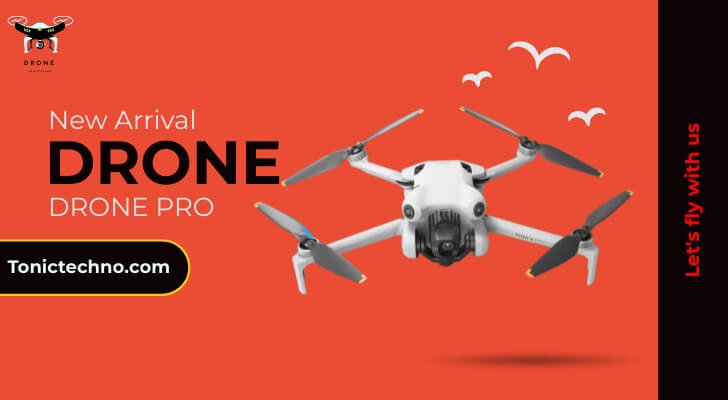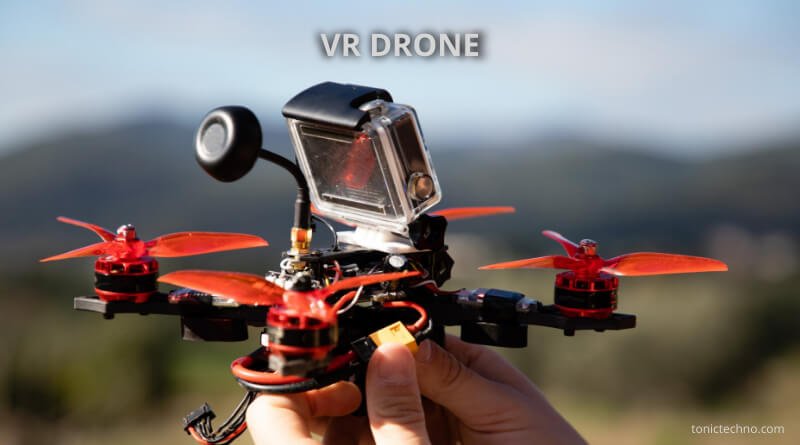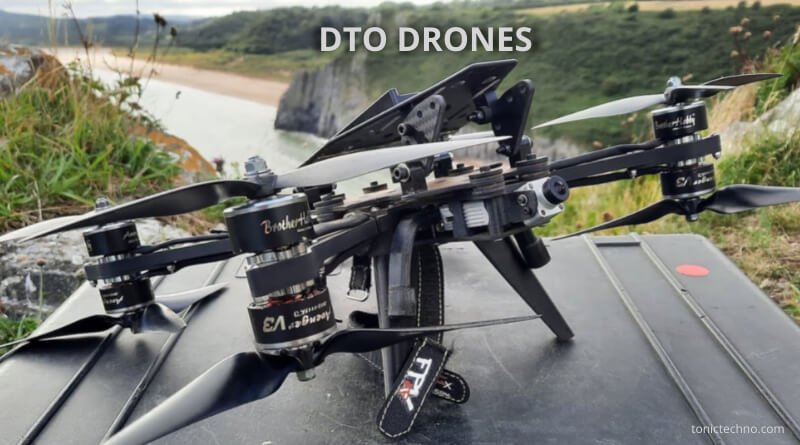Embarking on a journey into the captivating realm of Drone Pro, I reflect on the transformative impact of my experience in this dynamic field. As a seasoned enthusiast, I’ve witnessed the evolution of drone technology unfold before my eyes. From early fascination to becoming an adept professional, the skies have been my canvas. Join me in this blog post as I unravel the intricacies, share insights, and explore the vast horizons where Drone Pro expertise takes flight. Whether you’re a fellow enthusiast or a curious reader, fasten your seatbelt for an exhilarating ride through the world of aerial mastery.

Evolution of Drone Technology
Historical Overview of Drone Development
The journey of drones, also known as Unmanned Aerial Vehicles (UAVs), has a fascinating history. In the mid-19th century, balloons were the earliest predecessors, later evolving into radio-controlled aircraft during World War I. However, it wasn’t until the 20th century that accurate drone technology emerged. The 1930s saw the British developing the “Queen Bee,” an early target drone. Fast forward to the 21st century, and drones have become integral to various industries, with their roots deeply embedded in a timeline rich with innovation and necessity.
Technological Advancements in Drone Pro Equipment
The technological prowess within the realm of Drone equipment has undergone remarkable strides. Initially designed for military applications, modern drones are now equipped with cutting-edge features. Advanced GPS systems enable precise navigation, and high-resolution cameras capture breathtaking aerial footage. Integrating lightweight materials, powerful batteries, and sophisticated sensors has made drones more agile and efficient. As Drone technology evolves, these advancements open doors to many possibilities, shaping a future where unmanned aerial vehicles play pivotal roles in diverse fields.
Roles and Responsibilities of Drone Professionals
Diving into the world of Drone Professionals unveils a spectrum of crucial roles and responsibilities, each contributing to diverse fields.
Surveying and Mapping
Surveying and mapping constitute one of the core functions of Drone Professionals. With their ability to capture high-resolution images and data from various altitudes, drones revolutionize traditional surveying methods. Advanced cameras and sensors can quickly and accurately map terrains, assess land features, and monitor changes over time. This capability proves invaluable in urban planning, construction, environmental monitoring, and disaster management, where precise spatial information is paramount for decision-making and analysis.
Aerial Photography and Videography in the Drone Pro Industry
Aerial photography and videography represent the artistic side of the Drone industry. With drones, professionals can capture stunning aerial shots and footage that were once inaccessible or costly. Whether capturing breathtaking landscapes, documenting events, or producing cinematic shots for films and advertisements, drones offer unparalleled perspectives. Their maneuverability and stability enable smooth and dynamic shots, enhancing storytelling and visual communication across various media platforms. As technology advances, the realm of aerial photography and videography continues to soar, pushing creative boundaries and redefining visual storytelling in the digital age.
Drone Pro Regulations and Compliance
Navigating the skies as a Drone comes with crucial rules and guidelines, ensuring safety and responsible operation.
Federal Aviation Administration (FAA) Guidelines
The Federal Aviation Administration (FAA) serves as the regulatory authority in the United States, outlining guidelines for drone operation. These rules cover registration, airspace restrictions, and flight altitude limits. As Drone Professionals, adherence to these guidelines is essential to ensure safe and lawful operation. Understanding the FAA regulations promotes responsible drone use and helps prevent accidents and potential legal consequences.
International Regulations Impacting Drone Professionals
Beyond national borders, international regulations play a significant role in shaping the landscape for Drone Professionals. Various countries have rules regarding drone operations, covering registration, licensing, and permissible activities. Navigating these diverse regulations requires a global awareness for Drone Pros, as they may engage in projects that span multiple jurisdictions. Staying informed about international standards fosters a responsible and harmonious integration of drones into the global airspace, emphasizing the importance of a shared commitment to safety and compliance.
Skill Sets and Training for Drone Professionals
Embarking as a Drone Professional entails a blend of technical expertise and a solid commitment to safety.
Technical Competencies
Drone Professionals must possess various technical competencies to operate their unmanned aerial vehicles effectively. This includes proficiency in navigating drone software, understanding flight dynamics, and interpreting data from onboard sensors. Additionally, mastering the art of drone maneuvering is crucial for capturing accurate and high-quality aerial footage. Continuous learning and staying updated on technological advancements are essential to ensure Drone Pros are well-equipped to handle the ever-evolving landscape of drone technology.
Safety Protocols and Emergency Procedures in Drone Operations
Safety takes precedence in the world of Drone Professionals, making it imperative to understand and implement safety protocols and emergency procedures. This involves a comprehensive knowledge of pre-flight checks, understanding weather conditions, and adhering to no-fly zones. In the event of technical malfunctions or unexpected situations, Drone Pros must be trained to execute emergency landing procedures and prioritize people’s and property’s safety. Rigorous training in safety measures ensures that Drone Professionals can navigate the skies responsibly and contribute to a secure and accident-free drone ecosystem.
Applications of Drones in Various Industries
Unlocking the potential of drones extends far beyond the realm of hobbyists, with diverse applications reshaping industries.
Agriculture and Precision Farming
In agriculture, drones have emerged as invaluable tools for precision farming. Drones equipped with advanced sensors and imaging technology provide farmers with real-time data on crop health, soil conditions, and irrigation needs. This data allows for targeted interventions, optimizing resource usage, and increasing crop yield. From monitoring vast fields to spraying fertilizers with precision, drones revolutionize traditional farming practices, contributing to sustainable and efficient agriculture.
Search and Rescue Operations Utilizing Drone Pro Expertise
In times of crisis, the expertise of Drone Professionals becomes a beacon of hope in search and rescue operations. Drones equipped with thermal imaging cameras and GPS technology can swiftly cover large areas, helping locate missing persons or assess disaster-stricken regions. Their agility and ability to access hard-to-reach locations make them invaluable assets for emergency responders. By leveraging drone technology, search and rescue efforts become more efficient, reducing response times and saving lives in critical situations.
Emerging Trends in Drone Pro Technology
Delving into the future of Drone technology unveils exciting advancements poised to reshape the industry.
Artificial Intelligence Integration in Drone Systems
Integrating Artificial Intelligence (AI) marks a groundbreaking shift in Drone capabilities. AI-powered drones can autonomously analyze data, identify objects, and make informed decisions during flight. This enhances efficiency in various applications, from automated surveying to dynamic obstacle avoidance. With AI, Drone Professionals can harness machine learning algorithms, enabling drones to adapt and learn from their environment. This streamlines operations and opens doors to new possibilities, pushing the boundaries of what drones can achieve in a rapidly evolving technological landscape.
The Impact of 5G Technology on Drone Connectivity
As 5G technology unfolds, its impact on drone connectivity becomes a game-changer for Drone Professionals. 5G offers unprecedented speed and low-latency communication, enabling real-time data transmission between drones and ground stations. This high-speed connectivity enhances the capabilities of drones in various fields, such as live streaming of high-definition video, remote piloting with minimal delays, and seamless communication between multiple drones. The advent of 5G technology not only elevates the performance of drones but also expands their potential applications, setting the stage for a new era in Drone technology.
Challenges Faced by Drone Professionals
Embarking on the journey of Drone Professionals brings forth opportunities and formidable challenges.
Privacy Concerns and Ethical Considerations
One of the critical challenges faced by Drone Professionals revolves around privacy concerns and ethical considerations. As drones soar through the skies, capturing images and videos, questions arise about the boundaries of surveillance and individual privacy. Striking a balance between leveraging drone technology for various applications and respecting privacy rights becomes crucial. Ethical considerations come into play, demanding thoughtful decisions regarding the responsible use of drones to ensure they contribute positively to society without compromising personal freedoms.
Technical Limitations and Environmental Factors
Amidst the technological marvels, Drone Professionals grapple with technical limitations and environmental factors that impact their operations. Drone flight time, influenced by battery capacity, limits mission durations. Adverse weather conditions, such as strong winds and precipitation, can impede drone performance and compromise safety. Navigating through urban landscapes with complex structures presents challenges for drone maneuverability. Addressing these technical limitations and environmental factors requires continuous innovation and adaptation, pushing Drone Professionals to find solutions that enhance reliability and resilience in diverse operating conditions.
Case Studies of Successful Drone Pro Implementations
Embarking on a journey through real-world applications, let’s explore how Drone Professionals have made a tangible impact in various sectors.
Real-world Examples in Agriculture
Drone Professionals have played a pivotal role in transforming traditional farming practices in agriculture. Drones have empowered farmers to optimize crop management through detailed aerial surveys and data collection. In one case study, a drone equipped with multispectral cameras monitored crop health, allowing farmers to identify areas needing attention. The result? Increased crop yields and resource-efficient farming. These real-world examples showcase how Drone Pros contribute to sustainable agriculture, revolutionizing how we cultivate and nourish our communities.
Notable Contributions in Disaster Response
Drone Professionals have emerged as crucial assets in disaster response scenarios, providing swift and efficient aid. A notable case study involves using drones to assess damage after a natural disaster. Equipped with high-resolution cameras, drones captured detailed imagery of affected areas, aiding emergency responders in evaluating the extent of destruction and planning relief efforts. The ability of drones to access hard-to-reach locations and deliver real-time data significantly enhances the speed and efficacy of disaster response operations. These case studies underscore the invaluable role of Drone Professionals in mitigating the impact of disasters and saving lives.
Future Outlook for Drone Professionals
As we gaze into the horizon, the future for Drone Professionals is teeming with exciting possibilities and advancements.
Anticipated Technological Innovations
The trajectory of Drone Professionals is poised to witness a wave of technological innovations. Anticipated advancements include the integration of artificial intelligence to enhance autonomous decision-making capabilities in drones. Beyond this, developing more efficient and sustainable power sources like solar-powered drones is on the horizon. These innovations promise to elevate the performance and versatility of drones, opening new avenues for exploration in fields like environmental monitoring, infrastructure inspection, and beyond.
Expansion of Drone Pro Roles in Various Industries
The influence of Drone Professionals is expected to expand exponentially across diverse industries. Beyond agriculture, disaster response, and cinematography, drones are projected to play integral roles in healthcare, construction, and logistics fields. In healthcare, drones may be deployed for medical supply deliveries to remote areas. Drones could facilitate surveying and monitoring construction sites with unprecedented precision. As the technology matures, the adaptability and versatility of Drone Professionals are set to redefine their roles, creating a ripple effect of positive impacts across a spectrum of industries.
Industry Collaborations and Partnerships
Exploring the synergy between key players in the drone ecosystem unveils a landscape marked by collaboration and innovation.
Collaboration Between Drone Manufacturers and Software Developers
The marriage of drone manufacturers and software developers paves the way for groundbreaking advancements in Drone Pro technology. Collaborations between these entities result in the development of sophisticated control systems, intelligent flight software, and innovative applications. By joining forces, drone manufacturers leverage software developers’ expertise to enhance their drones’ functionality and capabilities. This collaboration is integral in shaping the user experience, improving drone performance, and unlocking new possibilities for Drone Professionals in various industries.
Public-Private Partnerships Promoting Drone Pro Advancements
Public-Private Partnerships (PPPs) play a pivotal role in driving advancements in the Drone industry. Government bodies and private entities unite to foster research, development, and implementation of drone technologies. Such partnerships often lead to establishing regulatory frameworks, infrastructure for safe drone operations, and collaborative projects that push the boundaries of what drones can achieve. These synergies between the public and private sectors promote responsible drone use and create an environment where Drone Professionals can thrive, contributing to technological innovation and societal benefits.
FAQ
What is a Drone Pro, and what distinguishes it from hobbyist drones?
Uncover the expertise behind Drone Pro operations, emphasizing the professional applications and skills in the drone industry.
How can one become a certified Drone Pro?
Explore the pathways to becoming a certified Drone Pro, detailing training, certifications, and the technical competencies required for professional drone operation.
Are there specific regulations for Drone Pros?
Learn about the Federal Aviation Administration (FAA) guidelines and international regulations governing drone pros, ensuring compliance and responsible use.
What are the key technological trends in Drone Pro equipment?
Stay updated on the latest technological innovations, including AI integration and the impact of 5G connectivity, shaping the future of Drone operations.
How do Drone address challenges like privacy concerns and technical limitations?
Gain insights into how Drone Professionals navigate challenges such as privacy issues and technical constraints, ensuring responsible and efficient drone operations.
Conclusion
The dynamic landscape of the drone industry unveils a remarkable journey for professionals, aptly termed Drone . From historical milestones to cutting-edge technological innovations, Drone navigate challenges and contribute significantly across diverse industries. As they explore applications in agriculture, disaster response, and beyond, the future holds promises of AI integration and 5G connectivity. Collaborations between manufacturers, software developers, and public-private partnerships shape an evolving ecosystem. The commitment to safety, compliance with regulations, and the acquisition of diverse skill sets define the essence of Drone , illustrating their pivotal role in the present and their potential influence in shaping a groundbreaking future.


